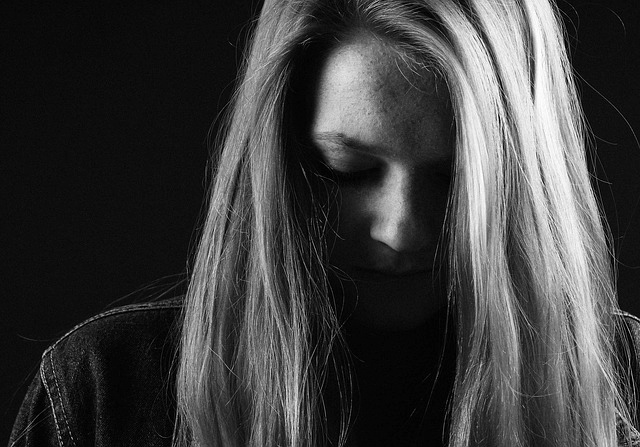In light of recent media attention surrounding Survivor’s Guilt, caused by the increase of mass shootings, we have become more aware of this phenomenon. However, although we hear so much about it now, it’s not a new thing. Survivor’s Guilt has existed in many ways since the dawning of civilization.

What is Survivor’s Guilt?
Survivor’s Guilt is a mental/psychological condition experienced when one lives while another/others don’t. The most public examples of this are mass shootings or other acts of violence, natural disasters, war or accidents that allow sole survivors, while many others around that one have perished.
Survivor’s Guilt can present in local/private settings, too. Although experienced as more subtle, Survivor’s Guilt may not be recognized as what it is. Examples of these events are simply the loss of family and friends, that one has survived and the guilt that follows for the one/ones who remain.
Survivor’s Guilt is an individual thing; impact, intensity and duration are unique to each person. However, to dwell too long in this space is not healthy and could lead to prolonged feelings of helplessness, suicidal thoughts and suicide. When a person is trapped in an unhealthy space of unresolved emotional and mental anguish over time, sadly, with some of the more tormented victims who still remain, we see attempts to stop the pain through suicide. Many of them are successful. In the aftermath of the 2018 Parkland school shooting, two youth took their lives because of their trauma. A father who lost his daughter in the 2012 Sand Hook Elementary shooting is suspected of taking his life as a result of his grief. The pain is real and it runs deep.
Since everyone is a unique individual, it makes sense that each one would experience, interpret and process an event in an individual way. Because of this, it is even possible for one to not experience Survivor’s Guilt. This too, is alright, as long as one is not in denial… at least for too long, that is. But, once the walls of denial have been pierced, one is sure to follow the same course in their grief process.
Understanding Survivor’s Guilt
To understand Survivor’s Guilt, one has to understand the psychological complexities of ambiguity. For instance, one could feel both, guilty and grateful at the same time for surviving, while another/others did not. For that survivor, what does it mean that they feel grateful to be alive, while sad that someone else died? Are they to feel lucky and even blessed that they got the thumbs up? But what does that say about the one/ones who didn’t make it? Did the survivor deserve to live while another/others deserved to die? For sure, self-worthiness issues are tied into this whole thing. Because of these confusing thoughts and feelings, a certain amount of guilt and shame may be present. I will write a lot more about this in Survivor’s Guilt (Part Two).
Common symptoms of Survivor’s Guilt
Survivor’s Guilt is experienced as suicidal thoughts and feelings, feelings of helplessness, hopelessness, anxiousness, sleeplessness and irritability. PTSD, involuntary flashbacks can be common, depending on the situation. Obsessive thoughts/feelings that compel one into voluntarily replaying the events back, are an issue too, especially if this is compulsive. What this looks like is the constant and continual thought consumed with what could have been done differently to get a different outcome. “If only the timing had been a little different.” “If only the circumstances were different.” “If only he, she, they, I was/was not there.” If only… and the obsessing continues like a runaway train barreling down the tracks, until, one way or another, it finally comes to a stop.
While some of this is part of the normal process of grief, thoughts and feelings of blame and self-loathing are apt to take one into a very dark unhelpful place that one should not descend to, as it turns into a psychological lashing more than anything, that helps absolutely no one at anytime.
In the next post, Survivor’s Guilt (Part Two), I will go deeper into the dynamics of Survivor’s Guilt.
You might also like- Stages of Grief

Very informative. Seems like an easy thing to get stuck in, but inevitably passes. Thank you Jade.
Thanks for talking about this subject. So important to talk about such complicated emotions. Appreciate your post and all you do.
Thanks Crystal! Thanks for reading and commenting.?
Hi Jade,
I sort of suffered from survivor’s guilt in a little different way. When Rich got sick on the boat, on the 4th day he was getting lethargic and I thought it was the narcotic and muscle relaxant. After stopping both on the 4th day, the 5th day he was worse and I had to act on it as quickly as I could being on a boat near somewhat remote islands. I always will wonder, what if I would have gotten him help on the 4th day, but I do realize that I did the best I could given the circumstances.
BTW, I wrote, or rather my cocker spaniel CJ wrote a book about our trip from a dog’s perspective…it is a cute book until the sad ending. It is called “CJ, BITTS, and a BOAT” and is available at Bookventure.com, Amazon, and Barnes and Noble. It was just released, and I am donating profits to animal welfare.
That’s so cool about your book. I’m excited to read it.
I know. We always wonder, if this and if that, but it does no good to do so. You did the best that you could. Hugs. Xo